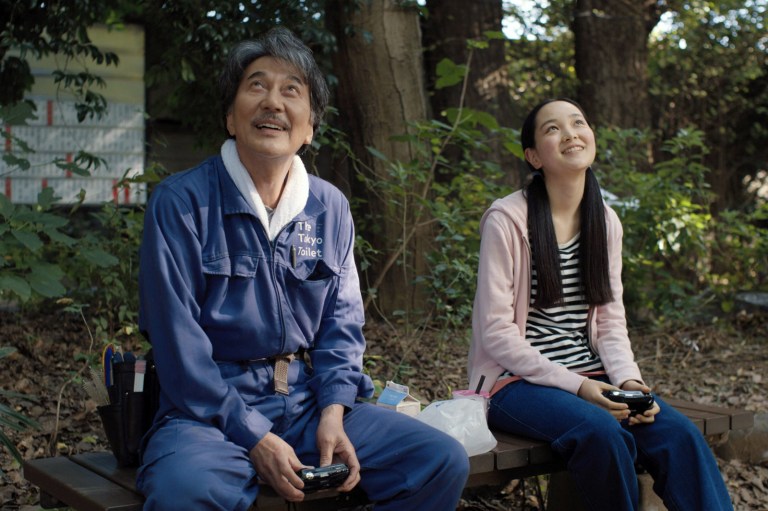
10 Things To Remember When You’re Having A Bad Anxiety Day
Anxiety can be fleeting, but it can also hang around for a couple of days, depending on the cause and the methods used to try and ease it. But it never lasts forever.
By ![]() Rose Goodman
Rose Goodman
1. It Won’t Last Forever
Anxiety has a great way of convincing you that this feeling is going to last forever. You reach a state of panic where your mind goes a million times an hour, where your thoughts feel out of your control, and you begin to spiral out and everything exists in extremes. It can convince you that this hyper-sensitivity to everything around you—every emotion, every fear, even the way you inhale and exhale—is a permanent state of being. But it isn’t. Anxiety can be fleeting, but it can also hang around for a couple of days, depending on the cause and the methods used to try and ease it. But it never lasts forever. Sometimes you just need to ride the waves; let the pain wash over you but remind yourself it will pass.
2. You’ve Gotten Through Worse Days, And You Can Get Through This
When anxiety strikes, it can sometimes feel like the most anxious you have ever felt; like you might not survive it. When your heart is constricting inside your chest and your lungs feel as if they’re on fire, it can feel as if you are going to completely fall apart this time. But I promise you, you’ve felt this way before. You convinced yourself of this last time and you are still here, you are still fighting. You are capable of far more than you let yourself believe. Just like the last storm passed even though you felt as if you might kept swept away with it, this one will too.
3. It’s Okay To Feel Overwhelmed
In the midst of the chaos inside your mind, it’s natural to feel embarrassed or even ashamed for letting yourself be controlled by irrational thoughts and fears. You can rationally tell yourself that your car isn’t going to fall apart while you’re driving or that you won’t forget how to speak when you stand up to do a presentation, but that doesn’t stop that thought from hammering away inside your head. No matter how many times you talk back to your anxious thoughts, it doesn’t always get rid of them. It’s okay to feel overwhelmed in this situation. It is okay to be so consumed by these thoughts that you can’t concentrate on anything else. As much as people tell you to “distract yourself,” it isn’t always as easy as that; anxiety is very good at taking hold of everything and encouraging you to obsess to the point of nausea. Being in constant battle with your own mind is exhausting, and that would overwhelm anyone. Everything you experience in a heightened state of anxiety is okay—it isn’t your fault and it doesn’t define you.
4. Even Though These Thoughts And Fears Feel Like The Worst Thing In The World Right Now, 90% Of The Time They Only Exist In Your Mind
At the crux of your anxiety is the belief that what you fear most in the world is in fact reality. Anxiety convinces you that these fears and thoughts, are occurring right now or will occur in the future. So often, people tell us to “trust our gut” and “don’t ignore our instincts, they exist for a reason,” and that is where anxiety can really mess with you. These alerts anxiety fires at you present themselves as real warning signs that something is going to happen—you believe it to be your gut trying to protect you when it is actually anxiety masking itself. In moments like these, you need to look back on all of those other “warning signs” that crippled you and ask, ”How many of these things actually happened?” because I assure you, the answer will be “very few” to “none.” Even if they did happen, they most likely did not happen in the extreme that you imagined. This is not to say your anxieties are not valid—everything you feel is valid and everything fear is often a result of past trauma or experience, so it is only natural that you developed a fear of these things happening again in future. But just because our mind can convince us that something will happen doesn’t make it so.
5. Isolating Yourself Is Only Giving Yourself Permission To Obsess And Fixate; It Isn’t Going To Make You Feel Better
When your anxiety is at its worst, isolating yourself can often feel like the best coping method. It can tell you to go to your room, shut the door, lay on your bed, obsess and fixate, and engage in behaviors that are going to make the anxiety worse. Even though sometimes you might feel as if you want to do just that—you want to collude with the anxiety, you want to feel it at its most debilitating and most painful—this will only help you spiral out and increase the chances of an anxiety attack. As difficult as it often feels to distract yourself and to be around other people, this is the best method. You don’t have to speak to those around you about what’s going on inside your mind, but you can engage in fun, light activities that may relieve some of the symptoms. If there’s no one around, put on your favorite TV show, write, or color—anything that demands your complete attention. Avoid stimuli which you know increases anxiety, such as your phone and social media. And I know this is easier said than done. I know you want to do all of the things anxiety is convincing you to do, but the longer you resist it, the more you focus on your breathing, the easier it will get.
6. Spend Time With Supportive Friends Who Will Listen To You (No, Seriously, They Won’t Think You’re Crazy)
Anxiety is often tied up with shame, embarrassment and fear of rejection and misunderstanding. People may not always understand your anxiety, but people who love you will always want to listen, even if they can’t help you. When you find yourself spinning in circles, going over and over the same fear and coming back to the same conclusion, reach out to someone you love and trust. So often, just talking through your fears can remind you that it is anxiety talking, not rational sense and reason. If you hear your anxiety out loud it can sometimes put it into perspective for you. Speaking to someone who can go through the stages of your anxious thoughts, unpack them and help you to reframe them can be an excellent way to settle your mind. They won’t think your crazy or irrational or anything else anxiety convinces you you are; they will want to help you. Having someone close to you who shows you they understand your anxiety, even if they don’t always understand the thought, will be a comforting source of support.
7. Even Though Everything Feels Out Of Your Control, It Isn’t
The feeling of having no control over events that happen to you is what anxiety thrives on. The feeling of being powerless enables it to grow and multiply, each thought growing into something more sinister and more believable. But what anxiety doesn’t want you to know is that you do have control… in as much as, you have control over how you respond to that anxious thought.
Hear me out—if an anxious thought creeps into your mind and you choose to accept it as based upon reality, reason and external evidence, you are giving it power to remain. When these thoughts occur, ask yourself, ”What is triggering this thought?” and follow that up with ”Is this based upon something which is happening right now, for which there is evidence, or is this based upon a previous experience or trauma?” For example, if you see on social media that your boyfriend has liked a female friend’s photo and immediately you begin to create a story in your head about how he is probably cheating on you or is in love with her, and then you begin to form a web of intricate details about how this started, how long it’s been going on, etc., and become fixated on it, you can’t think of anything else. You have now given that anxious thought control, power and the ability to remain. If you ask yourself, ”Am I responding to this in relation to my previous trauma?” and the answer is yes, you can try to let go of the thought. As much as anxiety wants you to believe this is a warning sign in order to protect you, it isn’t. So while you do not have control over the future, how people treat you, or events that may or may not happen, you do have control over how you let those thoughts impact your daily life.
8. Breathe
This one sounds simple, but that’s because it is. Breathing exercises are an excellent way to focus your thoughts on the here and now—also referred to as mindfulness, the practice of living in the moment. When you are feeling anxious, you are more likely to take fast, shallow breaths, which can cause an upset in the oxygen and carbon dioxide levels in the body, which can lead to increased heart rate, dizziness, muscle tension, and other physical symptoms that are conducive to panic attacks.
The next time you’re feeling anxious, try this simple relaxation technique:
Inhale slowly and deeply through your nose. Keep your shoulders relaxed. Your abdomen should expand, and your chest should rise very little.
Exhale slowly through your mouth. As you blow air out, purse your lips slightly, but keep your jaw relaxed. You may hear a soft “whooshing” sound as you exhale.
Repeat this breathing exercise for several minutes.
9. Your Feelings Are Valid
No matter how irrational anxious thoughts may be, they are valid. Everything you feel, every emotion you experience, is valid. You are allowed to feel as if you are spinning out. You are allowed to feel scared about the unknown. You are allowed to feel as if you want to avoid situations that you feel hold a variety of terrifying “what ifs.” Do not let anyone take your feelings away from you—no one has the right to do that. They also do not have the right to tell you that you’re overreacting, a drama queen, or anything else which people who do not understand and have never experienced anxiety may say to you because they aren’t willing to try to empathize with someone suffering with this condition. Anxiety is always valid but it doesn’t always have a place in reality.
10. You’re Amazing
Anxiety doesn’t define you. Anxiety is not who you are, it is simply a part of you. Anxiety does not mean there is something wrong with you, it just means you process things differently than others and have thoughts other people may not experience. It is not something to be ashamed of—over 18% of the population experience anxiety, and one-fourth will be affected by mental health issues at some point in their lives. You are not alone in what you are experiencing. And above all, you battle with your own mind on a daily basis and ride out the waves of anxiety and still manage to keep on going. You keep fighting against that desire to hole up in your house, avoid social situations or even get out of bed. That is something to be incredibly proud of. You are amazing. ![]()











